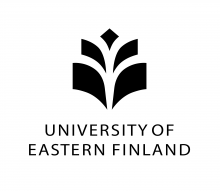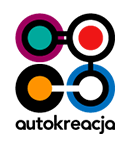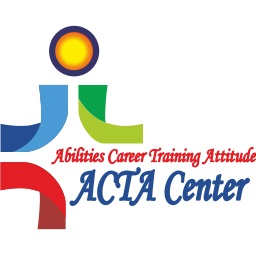Intergenerational learning (IGL) is a form of informal learning, which is related to questions of cultural and local identity, socialization and social cohesion. The massive aging of European citizens and immigration have altogether created an increasing need for improving ways of sharing cultural and occupational tacit knowledge.
According to ENIL, active and planned measures for enhancing intergenerational learning as a resource are needed outside the natural familial context of intergenerational learning. For example in non-governmental organizations and non-formal learning environments. This creates the context for our project. Our primary target groups are teachers, facilitators and instructors in the field of liberal and non-formal adult education.
The transnational level is needed for creating a relevant knowledge base for our more precise aspect, exploring intergenerational learning within diverse groups representing cultural and linguistic minorities as well as majority population of particular country. Here minority is defined as an irregular group of citizens representing non-dominant cultural and linguistic practices. The reasoning of this minority/majority point of view is in our objective to study intergenerational learning in its actual real-life context, by working with intergenerational pilot groups in different countries.
Pilot groups are working as a platform for investigating the different processes of IGL, providing up-to-date information on diverse experiences and testing methods. The emphasis of the project’s study is to find similarities among minorities and majorities and the enrichening potential between people, instead of differences. Essential concept is identity – how can intergenerational learning be used as an active resource for individuals in the process of creating meanings and identity? Can common European values be identified and transferred within intergenerational learning? How citizen competences can be built by intergenerational interaction and learning?
More essential than strict separation from the majorities are the subjective and sociocultural experiences of minorities, because the project is based on enhancing social cohesion. Social cohesion is seen here, according to OECD, as a larger societal objective, where social inclusion is one of three key values beside social capital and social mobility. Trust between citizens is the key element in social cohesion. Intergenerational learning functions here as a tool of creating trust. It is expanding ways of seeing the world and other, unknown people, and plaiting together generations’ experiences of life and especially the common future. Important in intergenerational learning is also to increase generational awareness, and at best, learning can develop into intergenerational creativity.
Behind the project’s objectives are also questions the project is looking answers for. What is the meaning of IGL as a constructor of identity, agency and culture, and supporting social cohesion and trust? How is it similar within majority and minority groups? What motivates people to engage in intergenerational learning? What are the key criteria for effective intergenerational learning to transfer in national policy? The hypothesis is, that learning in intergenerational context can promote cultural and values’ exchange, and enhance social cohesion between generations.
The project’s objectives and the practical actions to meet them are described here. Furthermore, the mentioned practical actions lead to producing the Intellectual Outputs.
- Enhancing the importance of intergenerational activity in learning, education and society
- Producing and gathering up-to-date data about the role of IGL in different countries in pilots
- Communicating externally about the project effectively
- Establish opportunities for intergenerational learning in order to support social cohesion
- Creating concrete preconditions and possibilities for local IGL in pilot
- Studying intergenerational learning in different sociocultural contexts in pilots and in intergenerational centers
- Creating an applicable model of an intergenerational center by observation and local researchSharing information and methods for everyone working in the field of adult educationThe project’s objectives and the practical actions to meet them are described here. Furthermore, the mentioned practical actions lead to producing the Intellectual Outputs.
-
- Training teachers, facilitators and educators to identify and use IGL as a resource in education
- Creating competences for mentioned target groups as a concrete course
- Producing and sharing know-how and methods used in the project.
COORDINATORS

Sivistysliitto Kansalaisfoorumi (SKAF)
FINLAND
Kansalaisfoorumi is a Finnish nationwide liberal adult education institution with 12 full-time employees. We aim at promoting active citizenship, community values and democracy through non-formal education and cultural projects. We provide educational, cultural and developmental services to civil society organizations and individuals interested in personal growth and life-long learning.

University of Eastern Finland (UEF)
Finland
The School of Educational Sciences and Psychology combines the competences of adult education, education, special pedagogy, psychology and counselling. The key to our operation is formed by the basic and postgraduate education of experts in these fields and related research. The university comprises of four faculties: the Philosophical Faculty, the Faculty of Science and Forestry, the Faculty of Health Sciences, and the Faculty of Social Sciences and Business Studies.

VITECO
Italy
VITECO is a provider of technologes for long-distance training and it is leader in e-learning sector, having its own e-learnig platform and a soil expertise on open source platforms. Its core business is based on VET and development of web-baed solutions for collaborative learning and educational content managment with a special focus on the development of hard and soft skills in several fields.

Autokreacja
POLAND
The Autokreacja Foundation aims at fostering the active participation in a civil society through various initiatives in the field of social economy. We contribute to the civilizational, cultural and economic development of Poland. We want to put the spotlight on problems of diverse social groups that are often marginalized, that is why we focus on cooperation with long-term unemployed, youth, eldery people, immigrants and refugees.

Universita Degli Studi di Trieste (UNITS)
ITALY
The University of Trieste, founded in 1924, is a medium-sized university which boasts a wide and almost complete range of university degree programmes. It currently has 10 departments (Economic,Business, Mathematical and Statistical Sciences; Engineering and Architecture; Humanities; Legal, Language, Interpreting and Translation Studies; Mathematics and Geosciences; Medicine, Surgery

Ljudska Univerza Rogaska Slatina (LURS)
SLOVENIA
Ljudska univerza Rogaška Slatina is a non-profit adult education and training provider for the community in the local region and wider with a rich tradition. Organization offers its learners 10 formal educational programmes that include both secondary schools and vocational training programmes in the field of catering, gastronomy, cookery, sales, economy, childcare or tourism.

Abilities Career Training Attitude (ACTA)
Romania
The European Centre for Socio-professional Integration ACTA is a non-governmental organisation which promote the educational activities, professional skills development of young people and adults in order to be able to adapt and to integrate effectively in a dynamic society, as well as involvement in the social integration of people at risk of social exclusion.
